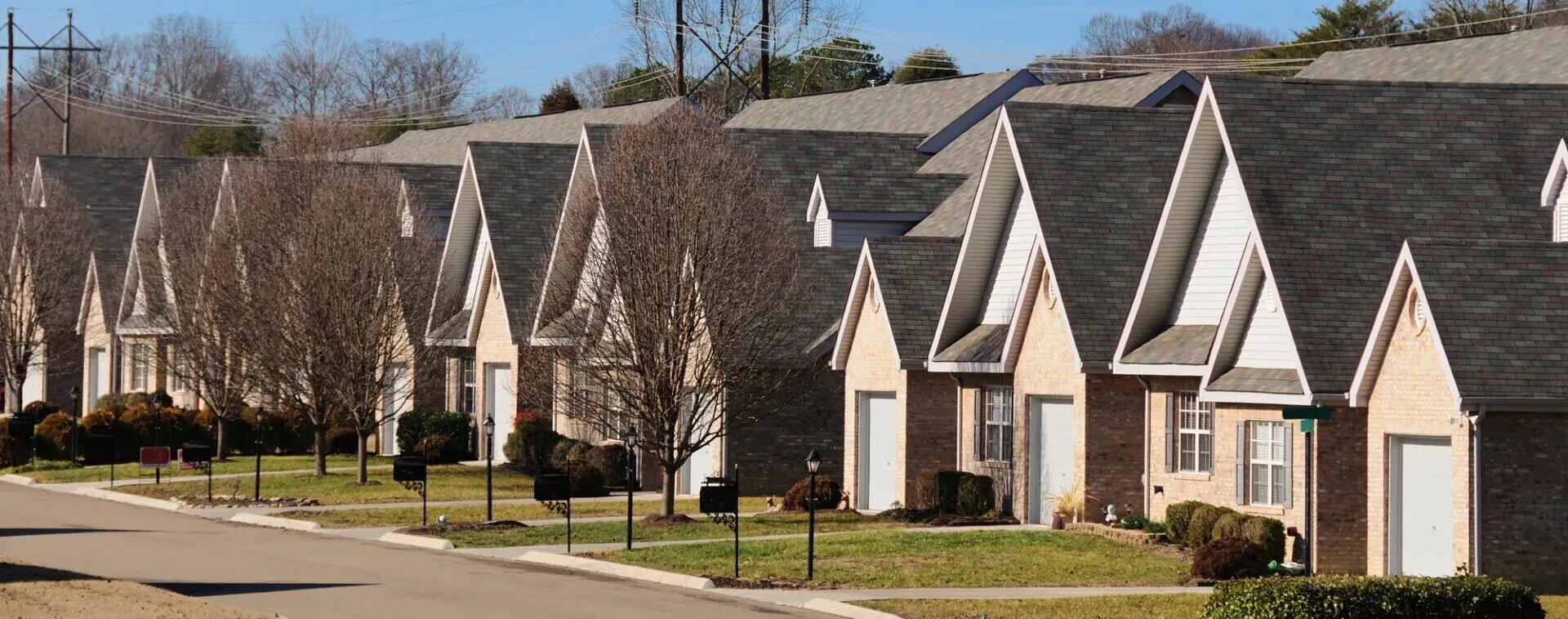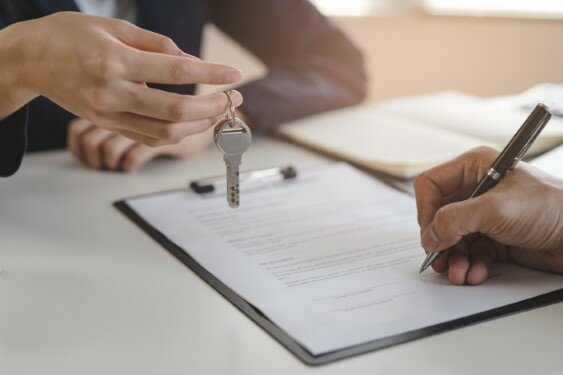
Are You Thinking About Becoming A Landlord?
“What if the tenants stop paying?”
“What if they tear up the house and I’m left with a mess?”
“What if I have to do an eviction?”
These are just some of the questions that begin to pile up when you begin thinking about renting out your house for the first time. It’s literally a knee-jerk reaction.
Although these are important things to consider, there are many practical components of being a landlord that many people don’t think about. Things such as setting up a reserve account for maintenance, locating a system to collect rent, and constructing a team of contractors. These tasks, and many more, are vital to successfully renting out your property. And the last thing you want to do is figure them out as you go. That’s what we did when we first started buying rental properties, and it led to a lot of stress. But we’ve distilled down those experiences and put together what we believe are our most useful tips for being a successful landlord.
We buy some properties with the intent to fix them and sell, and some with the intent to fix them and rent. There is a distinct difference in the intensity of renovation we put into a house based on what we plan to do with it. What potential tenants care about the most is that the property appears fresh and clean.
Our most popular renovations to spruce up a property include painting, replacing flooring, and updating light fixtures. It’s easy to go overboard on updates, but in most cases you don’t need to do as much as you’re thinking. Remember, you’re not going on HGTV!
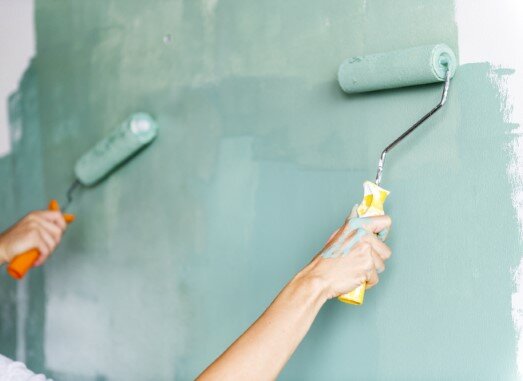
Cleaning is crucial, but unless you enjoy scrubbing toilets, refrigerators, and ovens, we’d highly recommend finding a good cleaning company to handle this.
Aside from the updates mentioned, it is important to fix any issues that you know exist (leaky faucets, damaged flooring, non-working outlets). If you don’t, you can be certain that your future tenants will call you about them later.
Without question, you must eliminate any safety issues. The most common we’ve run into are improper wiring, loose steps, and outlets near water sources that should be GFCI protected.
Financial Considerations To Being A Landlord
Just subtract your mortgage payment from the rent price, and that’s your monthly cash flow, right? Well, not really… There are other financial considerations to make before renting out your house.
The first is whether or not you will employ the help of a property manager. We highly recommend that you do this if this is your first time being a landlord, as they will allow you to be more hands-off on the property and reduce the amount of stress on you. Most property managers charge a fee of 10% of the monthly rent, so make sure to factor that in.
One thing that sets apart the rookie and veteran landlords is setting aside money in a reserve account for maintenance and vacancies. These issues are bound to happen, and being prepared for them will allow you to be profitable even during these times. We typically set aside 10-15% of the monthly rent and hold it for when issues arise. That way, when you have to pay a plumber to come out and unclog a sink drain, you pull it out of this money instead of it coming straight out of your pocket.
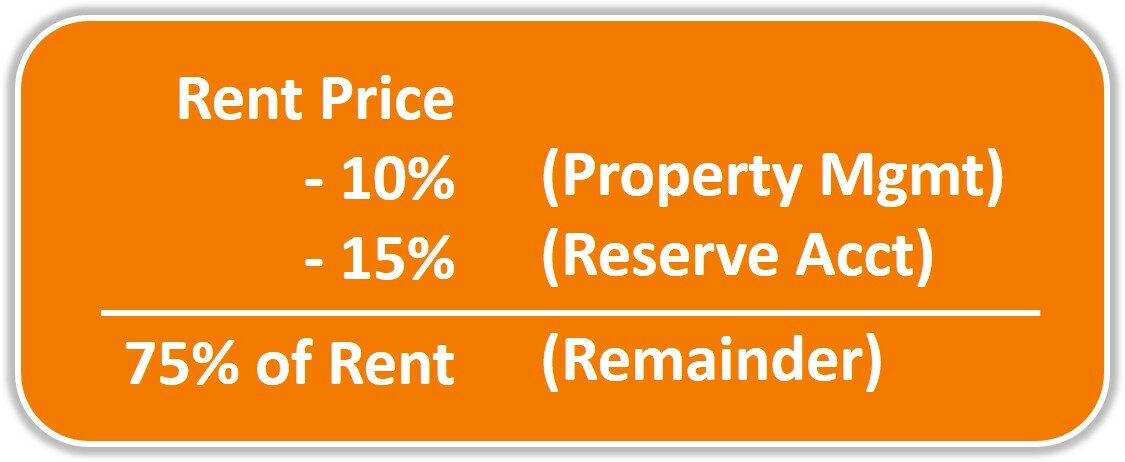
If you take these values into account and still have a significant amount higher than your mortgage payment, you are well on your way to being a successful landlord!
How Much Should You Charge For Rent?

Please don’t be landlord that arbitrarily comes up with a rent price and throws it out on the market. Most of the time, it ends up causing frustration because the price is too high and the listing ends up sitting and getting stale. The other end of that spectrum is listing it too low and missing out on potential cash flow.
Among house buyers like us, the Zestimate on Zillow is never used to determine a home’s value. However, Zillow also gives a Rent Zestimate, and this number is actually very useful. The price we rent properties for is often very close to this number. If you want to hone in the price even more, give Rentometer a shot. With this software, you can run a report on your property and find similar properties in the area that have been listed for rent. If you decide to work with a property manager, they can also give you guidance on setting the proper rent price.
How To Market Your Rental House
We’ve typically relied mostly on Zillow and Craigslist for marketing our rental properties. Zillow also pushes the listing out to other sites to get even more exposure. Make sure to take good-looking pictures that will spark interest in your property.
Pro-tip: Buy a wide-angle lens to clip onto your phone camera. This will make your rooms look much larger.
Aside from listing the property yourself, another option is to rely on a property manager to market the property for you. They specialize in locating and screening tenants, so make sure to find a good one if you do not feel comfortable marketing the house.
If you properly market the property, get ready for your phone to begin ringing off the hook! Obviously, it would be a waste of time to meet every caller at the house, since you can only take one. To keep from wasting everyone’s time, it is best to come up with some good questions to ask on the initial call to gage interest and determine if they will be a good fit. Here are some ideas to get the ideas flowing:
- Current living situation
- Why they’re looking to move
- How rent on your house compares to what they’re currently paying
- How long they’ve been looking
- Do they have pets
- How many people will be living in the house (adults/children)
This is definitely not an exhaustive list, but hopefully it gives you an idea of things to ask. It is often helpful to have a script handy so you can make sure you ask all of the right questions and jot down their responses or any other notes that stand out.
What System Do You Need For Your Rental Property?

Unless you have a system in place for how you will accept applications and collect rent, it will be extremely stressful when you get to this stage in the process. We have an online system for managing all of our rentals, and we’d recommend it for the first-time landlord. It’s completely free to landlords, and it provides a platform for accepting applications, performing background and credit checks, and collecting rent. You don’t have to collect any money from the applicants for the background and credit check. It simply charges them when they submit it.
Pro Tip: Don’t tell every applicant to submit a credit and background check. Just do it for the applicants you are very serious about. Otherwise, you will have people upset that they paid $40 and didn’t get accepted.
This system also makes rent collection very simple. Everything is online and the rent gets direct deposited into your bank account. The tenants can even set it to automatically draft from their account, so they don’t have to worry about remembering to pay each month.
How To Get Good Tenants
Now we’re to the point most people stress about when thinking about renting out their house. And for good reason. Getting a bad tenant can be a nightmare, and we’ve seen horror stories from our time in real estate. Missed payments and an abused house are just the beginning of the problems you can face if you don’t properly screen potential tenants.

The first step in the screening process is reviewing their application. Does their current income support the rent that you are charging for the house? Is their situation stable enough that it won’t change halfway through the lease?
A good indicator of their ability to pay rent regularly is their credit check. And don’t just look at their credit score. The big things to look for are if they have a large amount of debt they are dealing with or if they regularly miss payments. These are big red flags and likely indicate you will run into issues collecting rent from them.
Pro Tip: Actually call the references they list on their application. However, what we’ve found is that calling their current landlord is often useless, because if they are not good tenants, the landlord will tell you anything just to get rid of them. Instead, insist on getting the contact information of a prior landlord, because they will have no reason to lie.
You need to decide if you will allow pets or not. Just know that if you do not allow pets, you will be significantly reducing your pool of potential tenants. We go on a case-by-case basis. In all honesty, small pets typically don’t cause too much trouble. One thing to consider is if you will require an additional pet deposit. Some people even charge a pet fee that is non-refundable. A newer tactic landlords are employing is charging pet rent, which is a monthly fee for the privilege of keeping a pet in the house. It would be worthwhile to discuss these ideas with a local landlord attorney and see what is allowed and what is typical in your area.
Once again, if all of this makes you uncomfortable, we highly recommend hiring a good property manager. They are well worth their fee if they can get you a good tenant and take this burden off your shoulders.
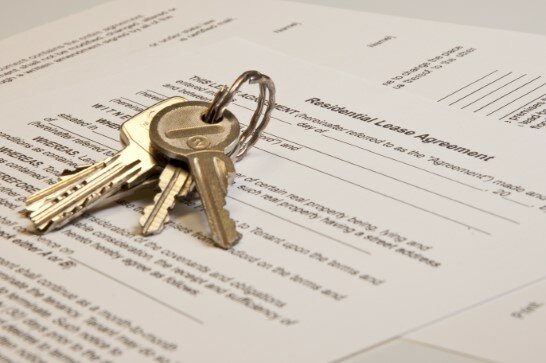
In order to make sure that you are covered, you need to make sure you use a legitimate lease agreement. Unfortunately, there is an abundance of phony leases floating around out there. And if you have a good tenant, it doesn’t really matter. It’s the bad ones where the lease comes into play.

Here are a few ideas to find a good lease to use. The first is to go to your local Real Estate Investor’s Association (REIA) and ask around. Chances are there are some seasoned landlords there that will be able to help you.

You could also get in touch with a local attorney that specializes in landlord-tenant law. This would likely be your best bet in getting a stellar lease agreement, and you’d probably learn quite a bit in your communication with them.

We’d also recommend checking out Legalwiz. The guy that runs this website is a real estate investor and an attorney, so he comes from a very unique perspective. His courses come with contracts, so this could be a good option for you as well.
Pro Tip: Make an inspection sheet that lists all of the components of the house and have the tenants walk through and note the condition of every item prior to moving in. You can check against this at the end of the lease to verify that the property has been properly taken care of.
Reduce Stress With A Move-In Checklist
As you can probably tell, there are quite a few things to juggle when renting out a house. Here’s a way to simplify your life a little bit – put together a move-in checklist.
This a way to make sure nothing slips through the cracks. Here are a few ideas to help you begin thinking of what you should include on your move-in checklist:
- Make sure your tenants have renter’s insurance. This will cover their belongings since your landlord policy will not
- Have them switch utilities into their name
- Make sure you have plenty of keys for the tenants
- Make sure smoke detectors are operational, as these are a safety requirement
It doesn’t matter how new your house is. If you think you won’t run into maintenance issues when renting out your property, you are going to be sorely disappointed. Even if you have the best tenants in the world, some things are just out of your control. The most common issues we’ve seen are HVAC problems, water leaks, and roof leaks.
It’s best to be proactive with regards to maintenance and have reliable contractors in mind before these issues arise. Trying to

scramble and find a reliable HVAC contractor with fair prices while your tenants are without heat can be extremely stressful, and this usually results in overpaying. A good place to start on your quest to assembling a team of contractors is by asking around at your local REIA.
Pro Tip: Add a clause to your lease agreement that you will be responsible for regularly changing the air filters for the house. The tenants will appreciate the money this saves them, and it will allow you to covertly inspect the property to make sure it is being taken care of.
How To File An Eviction
As much due diligence as you perform, there is always the possibility that things will go south and you have to do an eviction. This is the endgame that everyone dreads, but sometimes it is necessary. If handled incorrectly, it could be a disaster, both financially and legally.
This is where it is crucial to have a landlord attorney on your team. Our local attorney regularly files evictions and knows all of the pitfalls as well as keys to success.
If it comes to this, you must be prepared to make repairs prior to renting the house again, since the tenants will likely abuse the house on their way out. You will also have to cover the payments while it is vacant. This is the purpose of maintaining a healthy reserve account we discussed earlier.
Working With A Property Manager
As you can see, there are a number of steps involved with successfully renting out your house. If you feel uncomfortable with the process, we highly recommend finding a good property management company. We are constantly adding rental properties to our portfolio, and we use a property manager for each one.
What can you expect from a property manager?
- Market the property
- Screen tenants
- Handle the paperwork
- Take care of maintenance issues
- Collect payments
Although property managers are definitely worth their fee, they are not a guarantee that nothing will ever go wrong. We recently bought a house from a landlord that tried to sell their house but was forced to rent when the house didn’t sell. Although the house was with property management, it was in absolute shambles. Even though hiring a property manager will decrease your chances of things going wrong, unfortunately there are no guarantees when renting your house.
Your reasons for considering becoming a landlord could be a number of things. You may have really wanted to sell the house, but now are forced to do something after it didn’t sell. You may have inherited the house and are weighing out your options on what to do with it. Or, you may have moved and just thought this was the best thing to do with your old house. Unless you really want to generate cash flow and are willing to do everything we’ve talked about here to be successful, we strongly recommend reconsidering.
What if you could sell your house for a fair price and not have to worry about any of the headaches involved with being a landlord?

That’s Exactly What We Specialize In.
We buy houses in Huntsville, AL and the surrounding areas. We will make you an offer to buy your property, and you won’t have to worry about tenants, maintenance, or repairs. We will buy the house exactly like it is so you won’t have to fix a thing. You also won’t have to pay any fees or closing costs. And if the idea of cash flow interests you, we have programs that give you benefits of being a landlord without all the hassles. See how our Home Buying Process can work for you.

